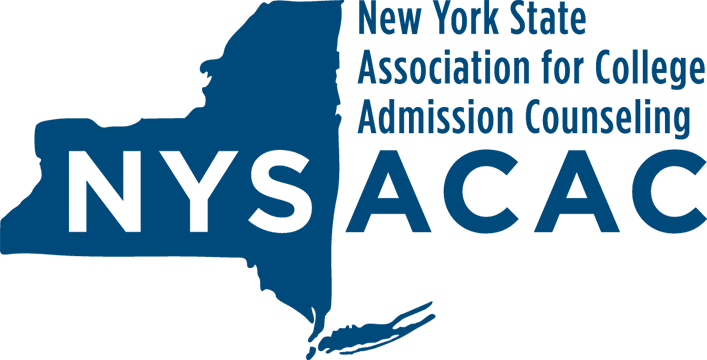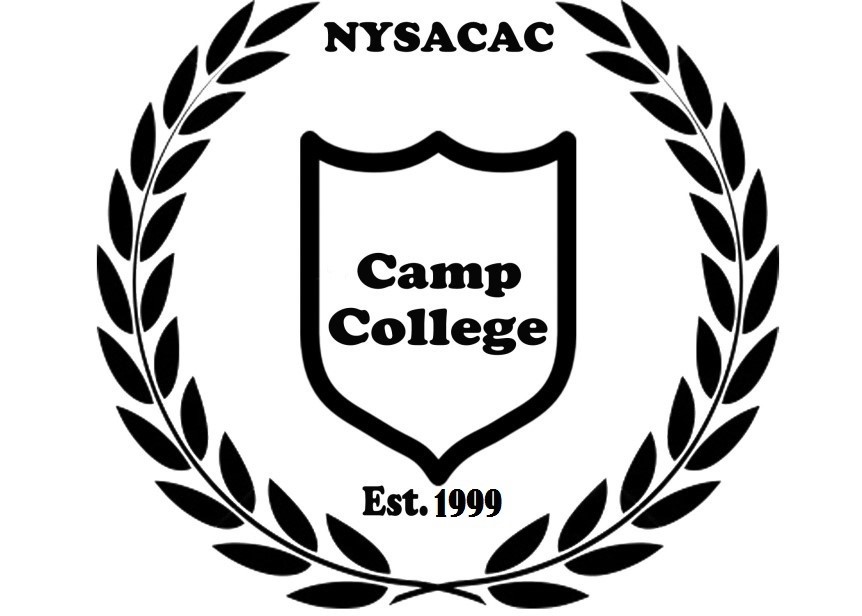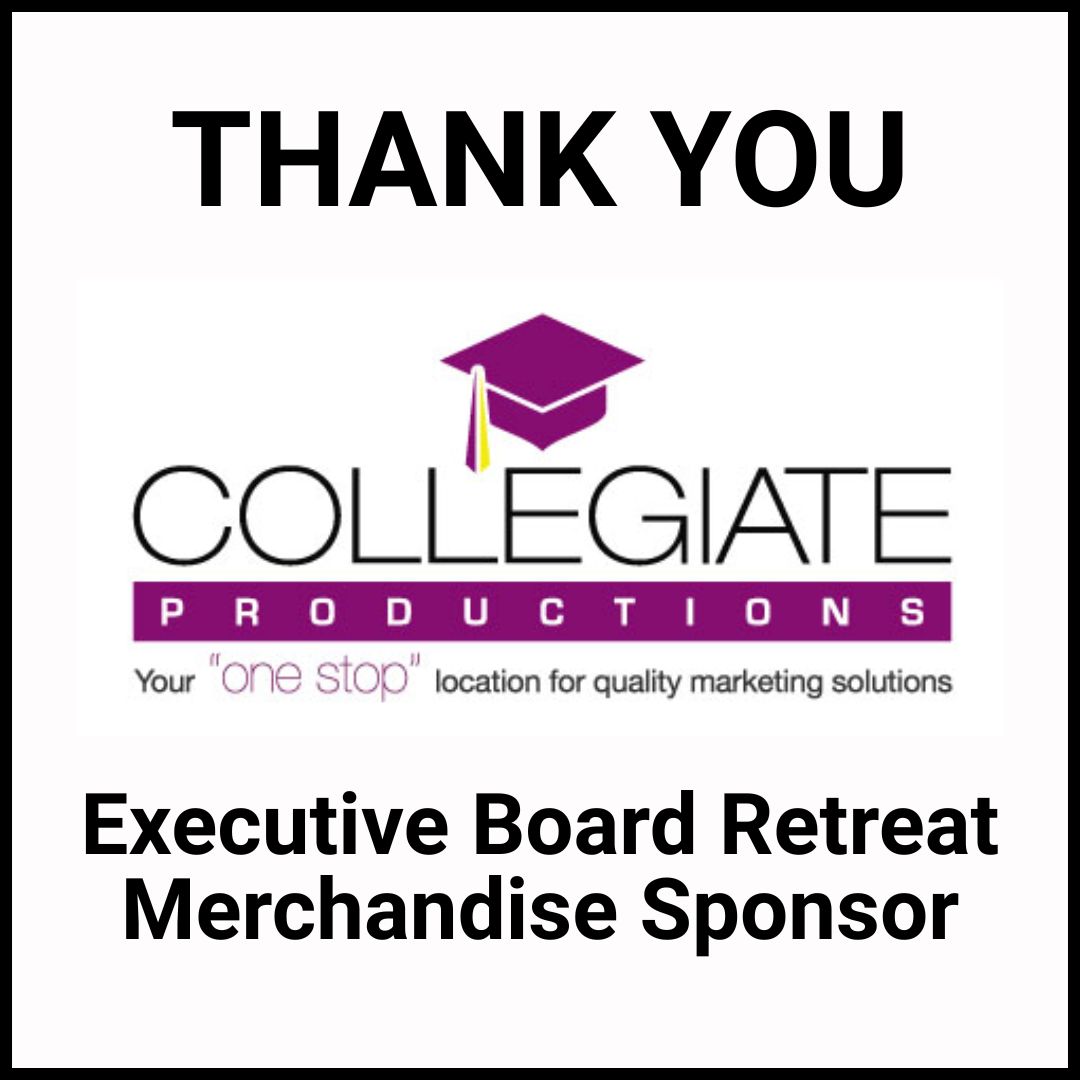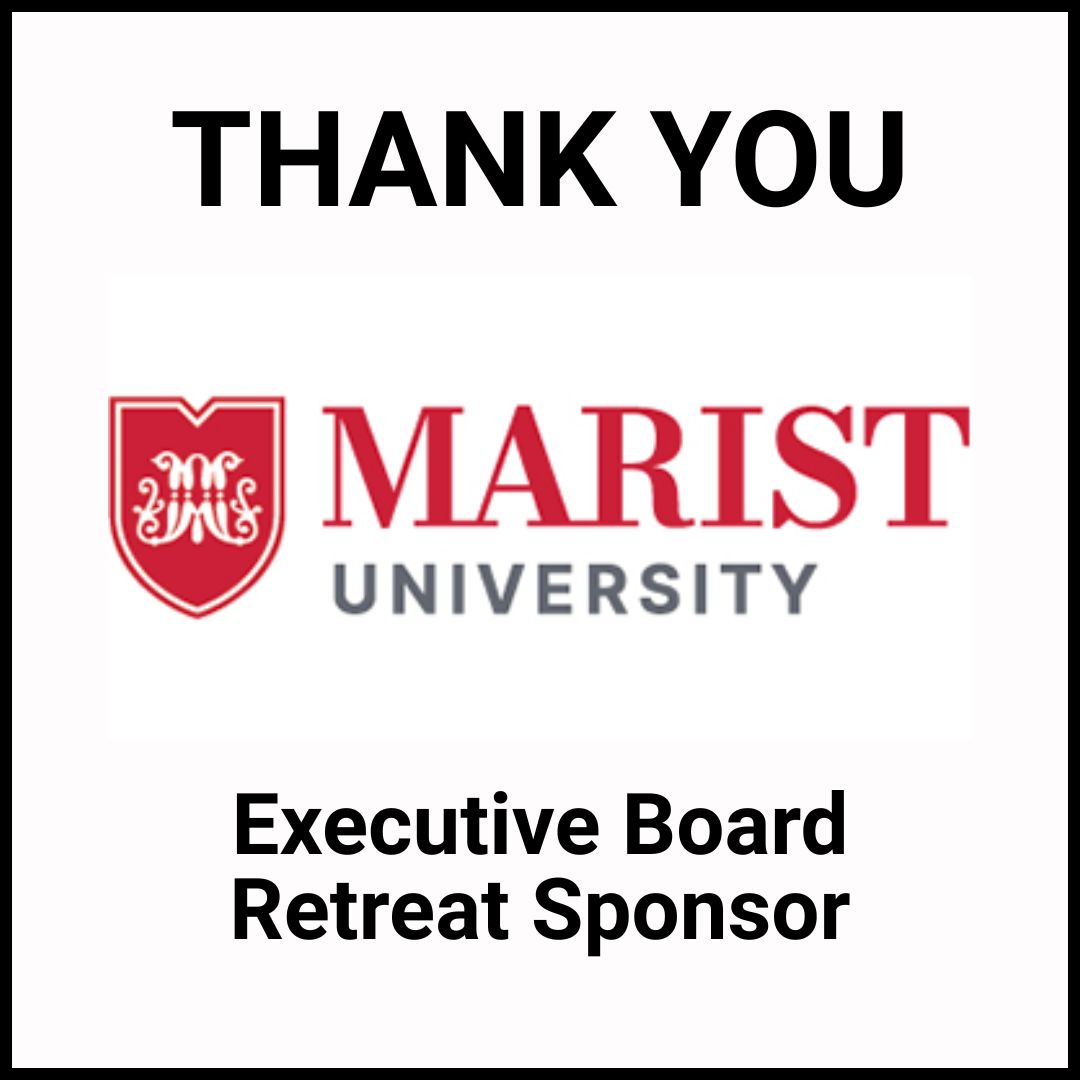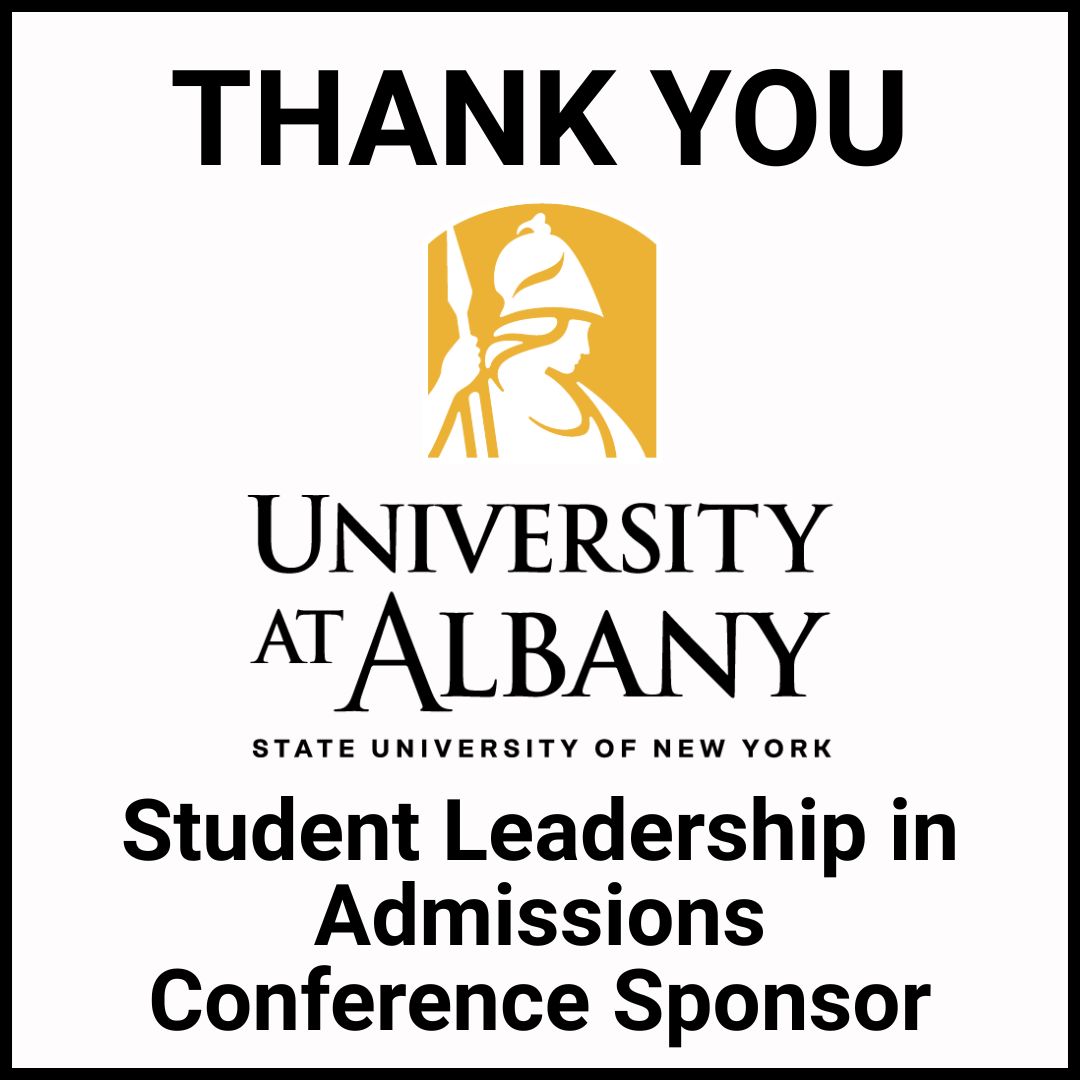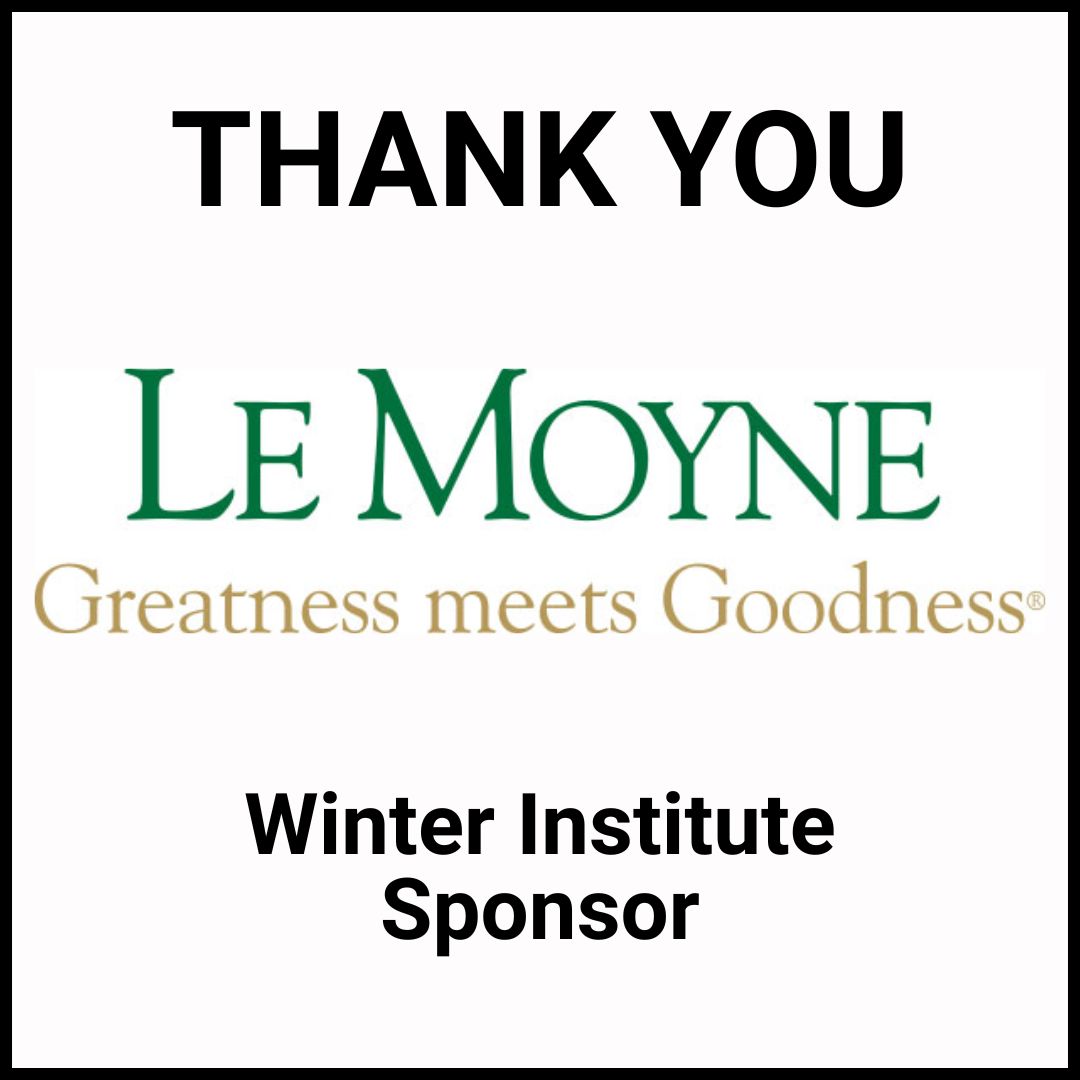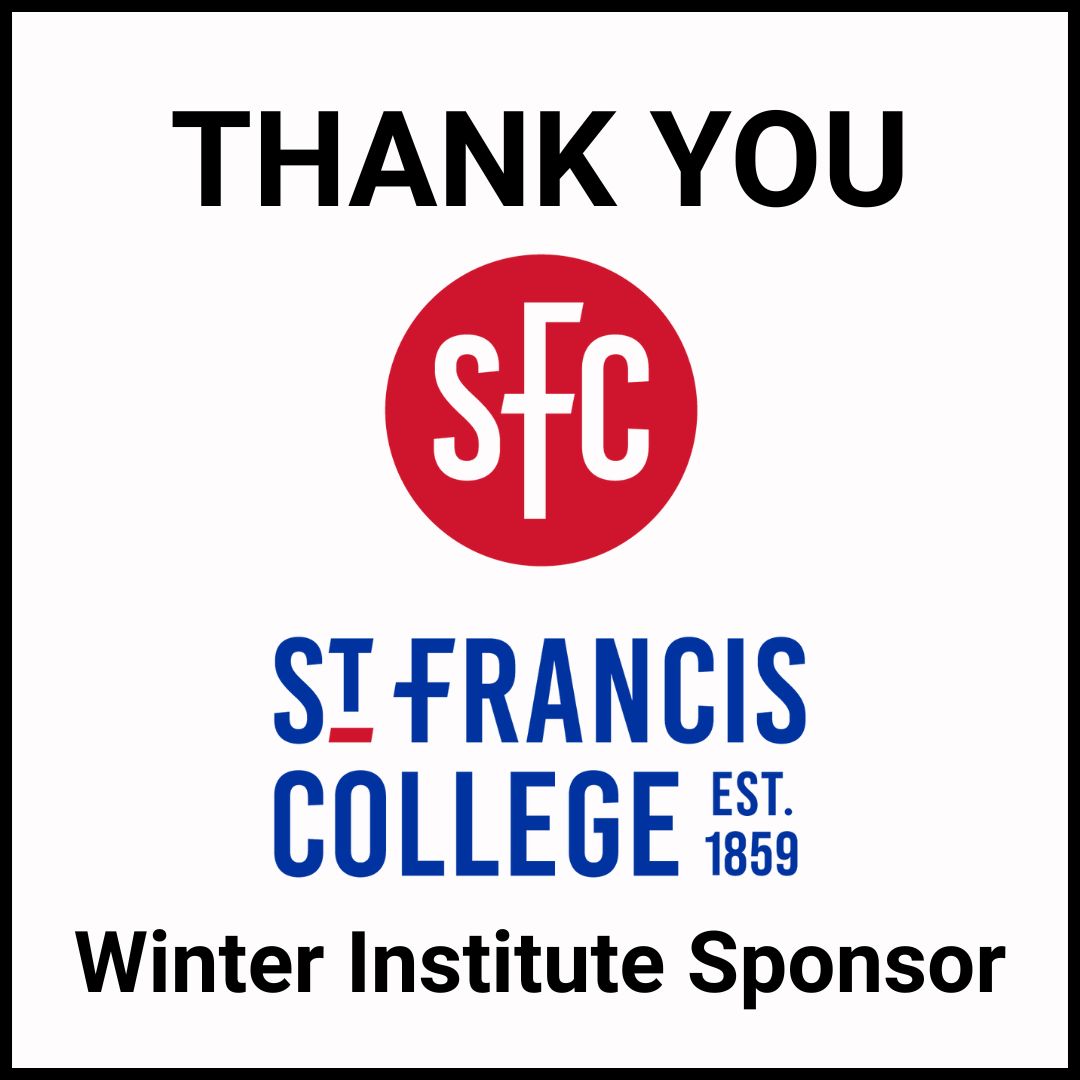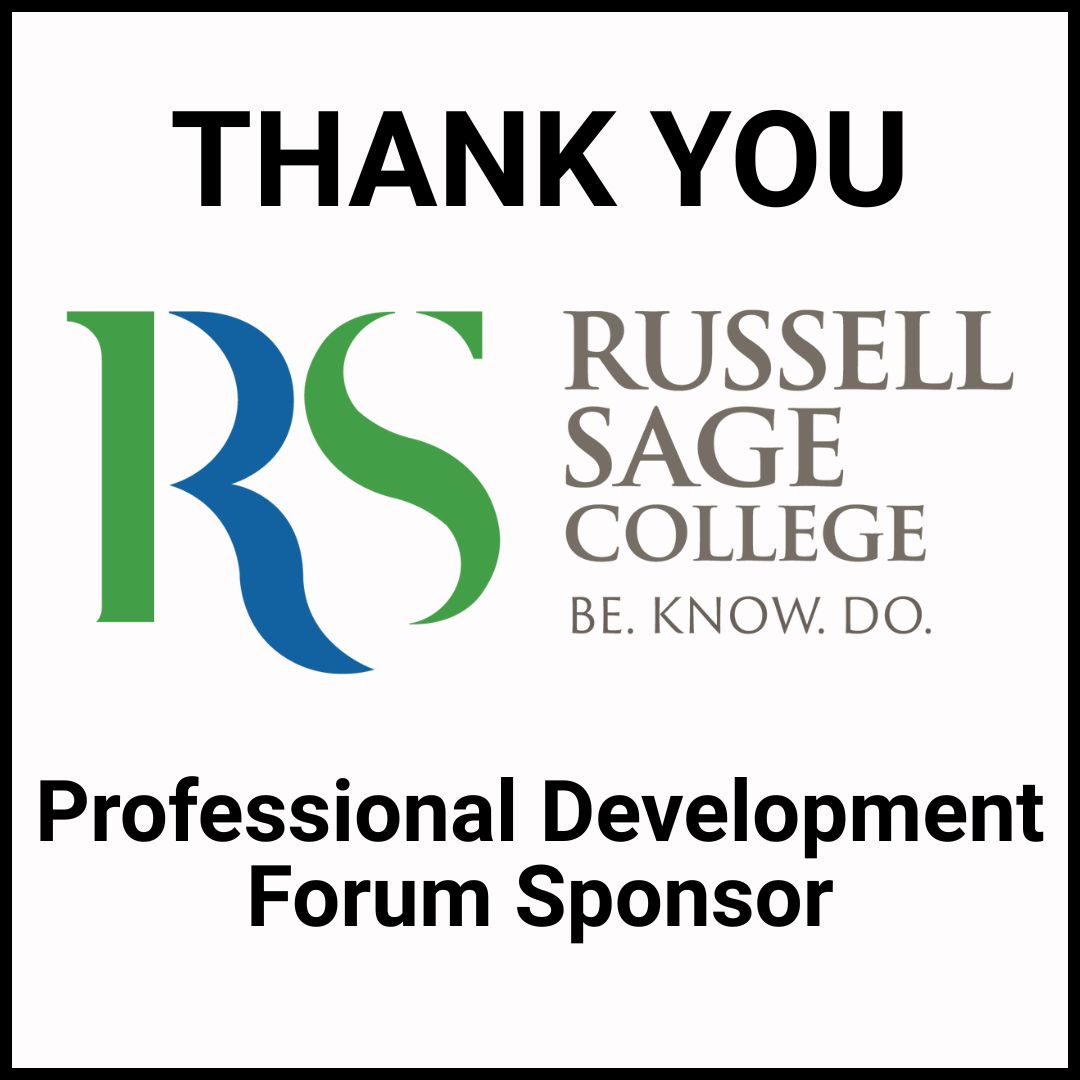- Home
- About
- News
- Government Relations
- Professional Development
- Community Outreach
- Donate
- Membership
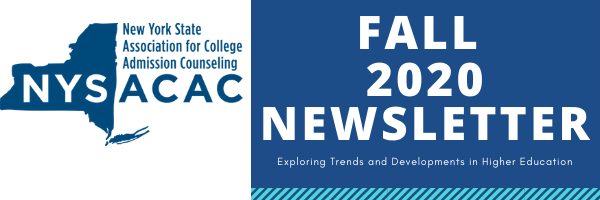 Message from the PresidentMarissa Guijarro, NYSACAC President Traditionally, fall and the beginning of the school year bring a sense of routine and predictability after the summer respite. Universally, this is not the case this year. With collegiality, a sense of purpose and mission in our daily work, and some “good trouble” (in the words of the late Rep. John Lewis) to disrupt systemic barriers, we can channel adversity into opportunities for positive change. As members of NYSACAC, we serve to support each other, to nurture professionals who are new or transitioning, and to recruit our next generation of leaders. Reflecting on the time since I accepted the virtual gavel in June, we have lots of good news to share. June 2020 Coming Together and Annual Conference: A talented steering committee organized the first virtual annual conference. As a goodwill gesture to our members and future members, this conference had no registration fee. Over 1,200 professionals attended. Angel Perez, (then future) CEO of NACAC, gave the welcome speech for Coming Together. New York State Senator Shelley Mayer delivered an address during the conference as part of the Legislative Forum (a past tradition revitalized by our Government Relations committee). July 2020A busy month! Camp College was a virtual program this year, allowing even more access for 120 high school students mentored by an enthusiastic group of professionals from colleges, high schools, and community-based organizations. Congratulations to Camp College co-chairs Jonathan Hoster and Rianna Miller, and VP for Inclusion, Access, and Success, Estrella Redondo. I appointed two ad hoc committees: 20/20 Vision and SIGs (Special Interest Groups). Led by co-chairs Meylin Andares and Joe Fantozzi, 20/20 Vision is supporting our association during this cycle in the areas of membership, development, and partnership. The SIG Ad Hoc committee, led by co-chairs Erica Padilla and Shameek Robinson, is focusing on providing a space for our SIG leaders to determine programming, and to provide a forum for exchanging ideas and best practices to grow our SIGs. Marie Nocella, President-Elect, Stephanie Espina, Immediate Past President and I participated in the virtual NACAC Leadership Development Institute along with the other members of the NACAC Affiliates Presidents’ Council. The NYSACAC Executive Board met for a virtual leadership retreat, where our work focused on the TEAM acronyms for our association, namely Transformative practice, Earn Revenue, Antiracism Education and Action, Mentoring and Membership across New York State, and for self-care, Take care of yourself, Empathize with Others, Ask for Help, Mindful Action and Reaction. August 2020Our Technology co-chairs Brenna May and Bryan Rothstein, VP of Communications, Meghan DeMayo-Dalen, and Executive Assistant Kathleen McArthur worked diligently to complete an update on our membership platform (MemberClicks) to Oasis. Membership co-chairs Melissa Bellantonio and Derek Demperio along with VP of Finance, Chris Doyle prepared for our new membership cycle. College Fair Committee co-chairs Betty Chen and Emanuel (Manny) Cruz, along with VP for Professional Development Kristen Harris led a working group to execute a successful pilot virtual college fair (August 13) with three more fairs scheduled for the fall. September 2020I had the honor of presenting testimony at a hearing about the impact of COVID-19 on student state financial aid and opportunity programs to a committee led by New York State Assembly members Glick and Hyndman. Many thanks to the Government Relations co-chairs, Julia Forman and Emily Task, and to Kurt Thiede, Project Manager, for their research and prep time with me! The Scholarship committee raised $2,000 towards student scholarships through an appeal to our members. Thank you to those of you who made a donation. October 2020NYSACAC hosted two virtual convenings on October 2 and 6 with stakeholders such as Education Trust, United Way, and others as part of the Bill & Melinda Gates Foundation grant work on “Engaging Decision Makers on Attainment Targets and Student Success.” NYSACAC is also the recipient of a general operating grant from the Gates Foundation for the 2020-2021 cycle. NYSACAC has partnered once again with the Education Trust on the FAFSA Toolkit, a guide that provides high schools with eight evidence-based practices to ensure FAFSA completion. Thank you to our dedicated Executive Board and Ad Hoc committee members for their work and creativity. I know that it is easy to feel overwhelmed right now. Every day I remind myself to focus on what good I can do, however small, for a student, family, or colleague. In the words of Khalil Gibran, “The smallest act of kindness is worth more than the greatest intention.” I wish you a safe and healthy school year!
Conference UpdateMarie Nocella, NYSACAC President-Elect
Coming Together Conference June 8-9, 2021 NYSACAC Annual Conference June 9-11, 2021 It is my great pleasure to announce that Mercy College will be the host site for the 2021 NYSACAC Conference! Mercy College is excited to welcome us, and the Steering Committee is planning with everyones health, safety, and accessibility in mind. I look forward to seeing you again in June! SIG (Special Interest Group) UpdatesWork on Identity and Status for Healing (WE-WISH) SIGCo-Chairs: Danny Robinson and & Karen Archibee The committee has begun planning for different types of programming such as (but not limited to) panels engaging NACAC leaders, a Winter Lunch series discussing podcasts, books, tv/film related to racism and white privilege, and co-facilitating sessions with other SIGs. We are focused on providing approachable and accessible sessions that will allow our membership to learn more about each other and our perspectives while focusing on opening minds and opening hearts. WE-WISH welcomes any and all members looking to learn, share, experience and expand their personal and professional views on white engagement in our industry. If you are interested in becoming involved, please email us at [email protected] LGBTQAI+ SIGCo-Chairs: Emmanuel Cruz (he/him), Erica Padilla (she/her) & Lenni Foreman (they/them) Our SIG group has three working groups: Governance and Advocacy, School, and Community Based Organization (CBO) Relations, and College Relations. Our committee has been keeping an eye on key NYS policy and legislation that affects our students and members. We are celebrating a big win for family building! The Child-Parent Security Act (CPSA) was passed, bringing New York’s family formation laws into the 21st century. We still have some major work to do in the coming weeks with advocacy as billions on Medicaid face cuts directly affecting many low income and vulnerable populations, especially within the LGBTQ+ community. Our SIG has also hosted a couple “wellness” check-ins with our members just to touch base and offer support. Latinx SIGCo-Chairs: Meylin Andares, Yohaly Navarrete & Estrella Redondo
In honor of Hispanic Heritage Month, our NYSACAC Latinx SIG held its first meeting on October 9th with guests from high school to college including public and private institutions, and community-based organizations. We collaborated with Julia Forman and Emily Task, our fabulous Government Relations Co-Chairs, who provided the most updated information on urging Congress to pass the Dream Act and the Promise Act. They offered guidance on how to get involved which included completing the census, voting during the upcoming election on November 3rd and on our upcoming Legislative Day in 2021! Afterwards, we had an engaging and fun conversation with each person regarding which country (or countries) and cultures they felt closely connected to as well as what strengths made them resilient. We are grateful everyone was open-minded and excited to share their personal Latinx experiences with the group, including recipes and cultural memories. We look forward to our next event scheduled for the beginning of December. If you’re interested in getting involved, please feel free to email us at [email protected] Methods for Promoting and Practicing Self-CareDr. Cecil Wright, Executive Director of Admissions at Mercy CollegeIt started as a running joke among my team “Will you be Panera Bread, Wendy’s or Chick-fil-A after the quarantine?” Some team members were associating their physical condition after the quarantine with the healthier brand of fast food--not that any of these were an appealing choice. Personally, I just did not want to be on the lesser end of the healthier spectrum so I opted to be a healthier me, and I challenged the team to be a healthier us. During our weekly team meetings, we would highlight what each of us had done to actively practice self-care. Even though we did not all go outdoors every day and do our morning walks or a mid-day stretch after being on the computer for hours, the team did do some unique things. Hanging with my pet “Rocky is a big part of my life,” said one team member. “He is everything to me and going out with him for a few hours just let me feel different. I did not think so much about whether it was self-care or just survival.” It was clear to me that this team member was practicing self-care by finding time to do the things that personally bring him joy, hanging with his dog, Rocky. “Rocky is a black French bulldog, about 30 pounds of pure muscle and filled with energy. Rocky was born in Miami but now lives in the big city. Taking care of him brings me joy and helps to promote self-care.”
The app that worked “Getting in a quick two miles daily was always part of my routine for the last four years but I was always inconsistent because it was self-driven and if I missed a day it would not be a big deal. Then,I discovered the Strava app through our human resources office’s healthier living platform. Now I can see my runs, what other members of the Mercy community were doing and it challenged me. I felt like I was committed to not be at the bottom of the chart and wanted to show some action every day. And I did! I’ve been consistently running or walking 1.6 miles every day for five consecutive months.”
Lunch breaks still exist “Stopping for lunch was an excellent way for us to practice self-care. When the pandemic first started, we were unsure about how we would clearly measure productivity. It became clear that many team members were putting in way more hours working from home than they would if they were in the office. Everyone was trying to show that they were as productive from home as in the office. That led to a significant imbalance. They were putting more hours on the computer than any other time previously, leaving much less time for self-care. By setting a clear time to stop for lunch, even listing “lunch” as a calendar item, provided room for us to practice self-care.”
Camp College 2021Rianna DeFreece, CUNY School of Professional Studies & Jonathan Hoster, Syracuse University
July 9th-11th at Nazareth College July 23rd-25th at Mohawk Valley Community College Applications for Camp College students, mentors, and chaperones will be available in early spring of 2021. Please see nysacac.org/camp-college or contact Co-Directors Rianna DeFreece and Jonathan Hoster at [email protected] with any questions. The Current State of Ethics in College Admissions: Understanding the GuideAdmissions Practices Committee: Austin Brass, Daemen College & Mike Campanelli, Urban Assembly School for Green Careers
Last month, the NACAC Assembly voted to replace the “Code of Ethics and Professional Practices (CEPP)” with the “Guide to Ethical Practice in College Admissions (Guide).” This step was taken as our organization continues to work towards a full and complete resolution to the Department of Justice (DOJ) investigation, alleging that parts of CEPP violated the Sherman Antitrust Act. How did we get here (an abridged version)? In November 2017, the DOJ contacted NACAC, alleging that parts of the CEPP violated antitrust law. Specifically, the DOJ alleged that through certain provisions of the CEPP NACAC was engaging in restraint of trade. The provisions in question generally addressed incentives in early decision plans, recruitment of committed students, and recruitment of transfer students. Working closely with counsel, NACAC immediately took action. In September 2018, the assembly voted to place a moratorium on the enforcement of the specific provisions in question. In September 2019, the assembly voted to fully eliminate those provisions from the CEPP, a prerequisite to what was then the forthcoming consent decree (an agreement between the DOJ and NACAC). The following month, the NACAC Board approved the terms of that consent decree, which further required NACAC to assign a compliance officer to ensure the organization fully abides by the term and to educate its members on antitrust practices. Immediately after entering the consent decree, the NACAC Board tasked the National AP Committee with examining the remaining parts of CEPP and determining whether our best course of action was to continue with it in place, modify it, or replace it. The decision was ultimately made to create a new document that would serve as a “best practices” guide, rather than an enforceable set of rules. While difficult, this decision was made in consultation with membership, leadership, and counsel, and with the future vitality of our organization in mind. From March through July 2020, the National AP Committee drafted the “Guide to Ethical Practice in College Admission” and shared that draft with membership for feedback in July and early August. The final version of that document came to the assembly for a vote last month, and was passed. As the dust settles around us, we can finally begin to move forward with a new standard to guide our ethical practices. The major shift we must all adjust to is that our new Guide no longer provides a mandatory set of rules or any mechanism for enforcing the provisions set forth. Instead, it lays out a set of best practices for our industry to follow in order to maintain the highest standard of ethical practice. The onus to act in the best interest of our students and our institutions, two concepts indeed bound up in the existence of one another, now falls on all of us and our collective conscience.UpperCampus was formed by former Facebook, Google, and Oracle executives. We are builders, and we launched our company to provide career-focused assistance to all students and educational institutions. UpperCampus is the first mobile-based Career Learning and Success Platform for students designed to look and feel like your favorite social media applications. We're striving to level the playing field and provide access to career pathways and guidance to all students regardless of socioeconomic background, school budgets, or resources that they may or may not have at home. Our mission is to connect students to careers that inspire them to do great things. If a student is interested in music and technology, then how about working at Amazon on the Alexa product? You love science and food? How about working as a food scientist at Taco Bell? Or maybe they are passionate about architecture and environmental science? How about creating green spaces for companies like PepsiCo and Google? As we say here at UpperCampus, the opportunities are endless. Our students just need help stitching it all together, and that's where we come in. The platform has been built for both high school and college students alike and it is FREE. The app includes content from thousands of employers matched to a student's likes and interests, a career assessment, detailed industry cluster information, and functionality to record and keep track of anything from academic achievements, work experience, or extracurriculars. We have also built a robust and easy-to-use interface for school administrators. You can create your own content and have it delivered into the student app, access a calendar and notify students about relevant college or career events coming up, as well as admin an alumni interface where you can request graduates of your school to create simple short form videos for your students. It's simple, it's free, and we'd love to show it to you. We are hosting a few product webinars over the next few weeks exclusively for NYSACAC members and we would love your feedback. Register at this link, or email Max Clark ([email protected]) with any questions or to be added to the list.
I'm Learning How to Ask Better QuestionsGenevieve Griffin, Small Steps Go Places I’m teaching a class called HS and College Essentials at Columbia University’s Tides. Tides is a 5-week Columbia University Educational Outreach virtual program, running Sundays from Oct. 4 through November 1st. It’s a long form of Splash (see next paragraph). The students in my first class have inspired the topic I’d like to briefly ask you to think about today: Asking Better Questions.Let’s start with what’s Splash? It’s usually an in person opportunity for high school students to take classes on a college campus. The classes are taught by academically related volunteers, many times college students. The younger students register, navigate a schedule, lunch, and have appropriate behavior. I found it with my own children and am committed to it because experiential learning is an essential step in being prepared to navigate the next opportunity.
Teaching this class was exhilarating because I’m not a classroom teacher who needs to put together and deliver a consistent curriculum. I’m not a counselor who’s helping students deal with the many, many changes that have increased, the already complicated experience of going to high school. I’m someone who’s made helping students be more engaged in their own journey toward college using experiential methods the mission of my small company.
Back to asking better questions; I guided the class through why general questions may not be effective. it’s difficult for people to know what you want or need, or it gives others’ permission to be silent or monopolize. I told them my three steps to asking a relevant question: be specific, provide examples, and speak loudly and clearly with a gentle smile. They asked if they could try these steps on their parents. The mostly female class of high achievers quietly talked about how“speaking loudly” was a challenge. We all realized that friends are an essential part of high school, along with free time and sleep. And, those friends who invite you to something like Tides are the best. You can get through the discomfort of meeting new people and learning about new things easier with a friend.
Book Review:The Pandemic Population: Eight Strategies to Help GenerationZ Rediscover Hope After Coronavirus by Tim ElmoreAndrea Nadler, Hofstra University This book, written by an expert on generational traits and mindsets, discusses the impact of COVID-19 on Generation Z. The author provides his expertise in how to lead a vulnerable population through this tumultuous time. Through his analysis of past global crises and using real-life examples of people in history, he shares the latest research on overcoming challenges to identify strategies and best practices for leading in times of crisis. Though this generation is dealing with great uncertainty and unprecedented circumstances, this book shares how we can help them shape their personal narratives. This strategy teaches Generation Z how to turn post-traumatic stress into post-traumatic growth. Tim Elmore’s guide is practical and optimistic and will be a wonderful resource for educators, parents, and coaches. As we lead the youngest generation through this global pandemic and its aftermath, we can also support them to foster a spirit of resilience and grit.
Movers and ShakersAdam Francis Adam Francis joined the Utica College Admissions team as Assistant Director of Admissions- Multicultural Recruiter. Adam is regionally based in the New York City Metro area and will be responsible for recruitment and building relationships amongst the city. Prior to joining the team at Utica, Adam served as an Admissions Counselor at Vaughn College of Aeronautics and Technology.
FAFSA ToolkitThe Education Trust-New York With data indicating that the percentage of high school seniors who completed the Free Application for Federal Student Aid (FAFSA) in New York dropped as the coronavirus pandemic forced school closures last spring, The Education Trust–New York and education organizations across the state are releasing the Financial Aid for College: High School Toolkit to support high schools in helping all students complete financial aid applications.
The Financial Aid for College: High School Toolkit highlights 10 evidence-based strategies schools can use either remotely or in-person to help students with financial aid application completion, tips for tracking progress, and materials in English and Spanish that can be used to communicate with students and families.
The resources – created in partnership with the New York State Higher Education Services Corporation (HESC), New York State Council of School Superintendents, the Options Center at Goddard Riverside, Hispanic Federation, New York Immigration Coalition, New York State Association for College Admission Counseling, and New York State School Counselors Association – include:
Alex El Helou, Senior Admissions Counselor/EOP & International Coordinator, SUNY Maritime College
Stress and anxiety are not strange feelings for a high school or college student. Finding time to manage all of your responsibilities is challenging and can impact mental health. And what makes it even more difficult is the fact that there is a stigma in society associated with mental health challenges. Furthermore, as a result of the COVID-19 pandemic, we find ourselves visiting these unwanted feelings more often. As education professionals, it is important for us to dispel the stigma and help our students understand that paying attention to mental health is important. According to early Hindu tradition, there are seven centers of energy in our body, also known as chakras. Balancing our chakras can help us achieve a state of mindfulness and wellness. When chakras are closed or unbalanced, they create a sense of physical and emotional discomfort. The seven chakras stretch throughout the body promoting balance in different ways. They include: root chakra, sacral chakra, solar plexus chakra, heart chakra, throat chakra, third eye chakra, and crown chakra. Understanding these chakras and how to balance them can be a useful approach to finding mindfulness. Our root chakra keeps us feeling safe and secure. Students and professionals see root chakra blocks with continuous travel, financial strain, or disconnection from relationships. Deep breathes and connection to the ground helps unblock the instability. Sacral chakra is our sense of sensuality and creativity. Sacral chakra is blocked through stresses of unclear thoughts. Uncertainty of college decisions and placement could yield these negative thoughts. We can find balance here through deep breathing, closing our eyes, and giving a moment for our negativity to live. We need to acknowledge them in order to let them go. Our solar plexus chakra is our will and mental stability. Solar plexus is blocked when there is a sense of needing to control or insecurities. Breathing while mentally living our daily routine can help recover this sense of loss of control and expel negativity. Our heart chakra is our sense of compassion. Focusing on past relationships, holding grudges, and bottling up emotions blocks the heart chakra. This closes us off from our peers. As we breathe and give time to understand our feelings of past mistakes, we learn to give ourselves permission to forgive. This opens our heart chakra, making us more open to assistance from our peers and colleagues and developing healthier human relationships. Our throat chakra is our vehicle of communication. Shyness or difficulty communicating can block our throat chakra. Speaking our truth and finding acceptance places our throat chakra in a healthy balance. Our third eye chakra is prudence. Blocking of the third eye chakra comes from being anxious and overwhelmed. The workload many students face can block perspective of the future. To bring balance, we need to dedicate time to connect with our inner self, increasing our sense of intuition and hope. Our crown chakra is the door to greatness and joy. The crown chakra can be blocked with feelings of isolation. Being in a new place or working on a new task, can be overwhelming. Understanding and acknowledging this allows us to be open to the new experience and accept the growth that comes with it, bringing balance to our crown chakra. An unbalanced chakra could lead to instability, causing stress and anxiety in one’s life. Meditation and self-reflection is the best form of balancing these chakras. Successful meditation can be achieved by following the path of the chakras with focus and controlled deep breathing starting from the root to the crown. Balance creates calmness and clarity, leading students down a path of strong mental health and a more successful academic career. At the end of the day, if our body hurts, we take medicine; if our mind hurts, we shouldn’t ignore it. Invest In Your Professional Learning!Deborah Fuller, The Options Institute
The Options Institute is a nationally recognized provider of in-service training for college access advisors. A program of Goddard Riverside based in New York City, the Institute has reached over 7,000 individuals from hundreds of organizations and schools in the last 15 years. With the need for students to be supported by postsecondary access counselors and advisors fully equipped to engage and guide from a place of knowledge, strength and equity, our hallmark program -- Foundation Course for College Access Counseling -- provides the essential knowledge and skills needed for that assistance. Join us in these training sessions. For more information click here. See all of Options Institutes virtual workshops by browsing the catalog here. |
